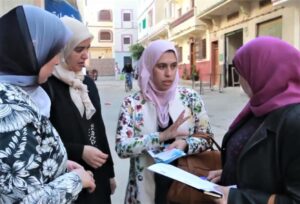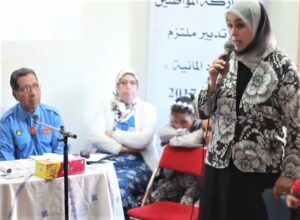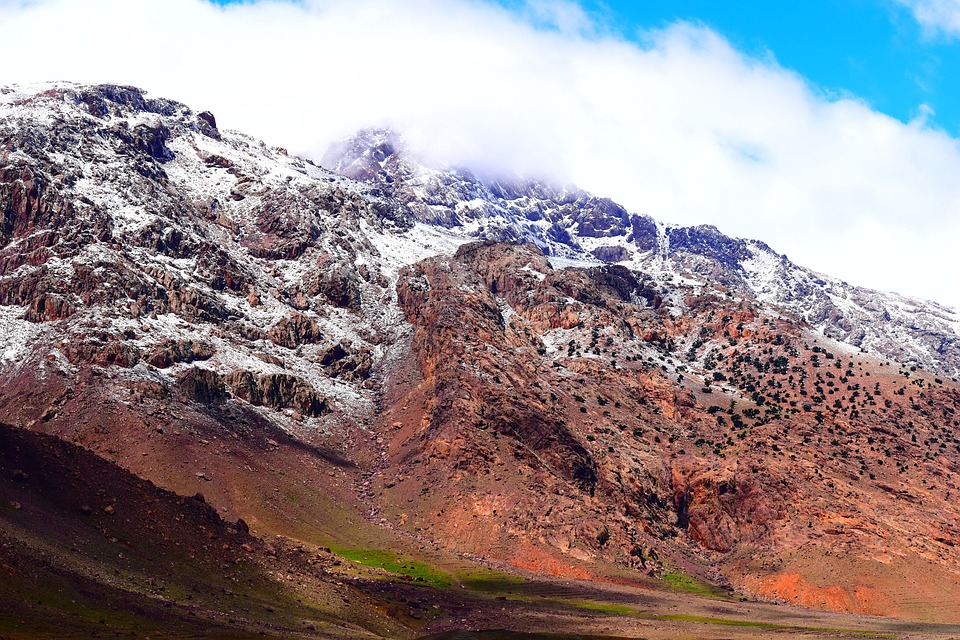When poor people build homes, they often cannot obtain formal proof of property ownership. That often prevents them from receiving public services such as household water. In the low‑income neighborhoods around Asilah, Morocco, thousands of residents in informal dwellings have been obliged to fetch their water from a single public faucet – filling tanks on horse-drawn wagons or extending long hoses from their homes. About 2,000 people share one water tap in each neighborhood.
The arrangement is a drain on the residents’ time and their health. “Women and children wait for their turn for several hours to get access to the taps,” said Bachir Bakali, who heads the nonprofit organization CIDEAL Morocco, based in nearby Tangier. “They carry the drinking water in bottles that were used before for chemicals and store it in their homes,” which can lead to illness, Bakali added.

Residents of informal neighborhoods around Asilah, Morocco, were frustrated in their requests for household water service. A project funded by USAID trained residents in mobilizing their neighbors for organized advocacy and petitions.
In the past, residents would complain about the situation to officials of the municipal government in Asilah. But without legal ownership papers, the complaints had no effect. Residents were left feeling neglected, resentful, and alienated. A project funded by USAID changed the way the residents view themselves and their right to public services, providing a model that can be applied elsewhere in Morocco and in other countries. With funding from USAID via Counterpart International, CIDEAL trained the residents to advocate for themselves effectively.
CIDEAL reached out to community groups in the informal neighborhoods of Mexique and Sekkaya in 2017 and helped them form committees to advocate for household water connections. Residents of the nearby neighborhood of Daghaline, heard of the work and asked to be included. The work spread further as CIDEAL welcomed community organizers from throughout the Asilah area to attend advocacy training sessions in spring 2017.
At the same time CIDEAL helped residents consider their own responsibility. The shared public faucet was often left running, leading to waste and forming stagnant pools where mosquitoes bred. So CIDEAL’s training also instructed residents on conservation of water and other resources.
In late 2017, the water committees began their advocacy campaigns – raising awareness, mobilizing their communities, and making use of the new right of petition recognized by Morocco’s 2011 constitution. The committees gathered signatures and presented the petitions to the municipality of Asilah, one of the first uses of the petition procedure.

Through USAID funding, CIDEAL Morocco trained residents of informal neighborhoods to advocate for access to water and sanitation services.
Municipal officials were persuaded to seek solutions. In 2018, the municipality began granting permits to residents of two of the neighborhoods to connect their homes to water service: As of early 2019, some 80 percent of residents in Mexique had obtained household water services, and 40 percent in Daghaline. The solution is more elusive for Sekkaya, which is built on land owned by the military, but the municipality has promised to find an solution such as relocating the homes.
CIDEAL believes this is the first time in Morocco that the populations of marginalized neighborhoods have organized to assert their right to public services. The organization plans to continue this model of building the capacity of communities to advocate for themselves.
CIDEAL grew in the process. Counterpart advised CIDEAL on the project, helped strengthen its organizational development, and trained CIDEAL on results-based reporting.
More broadly, the project changed the relationship between the informal neighborhoods and local government. With CIDEAL’s guidance, the water committees entered into a charter with the municipality of Asilah which creates a long-term forum for the low-income citizens to engage with officials about water and sanitation services. For the neighbors who began with no legal recognition of their residency, the charter legitimizes their relationship with government. The charter is viewed as a model for similar interventions elsewhere in Morocco and other countries.




